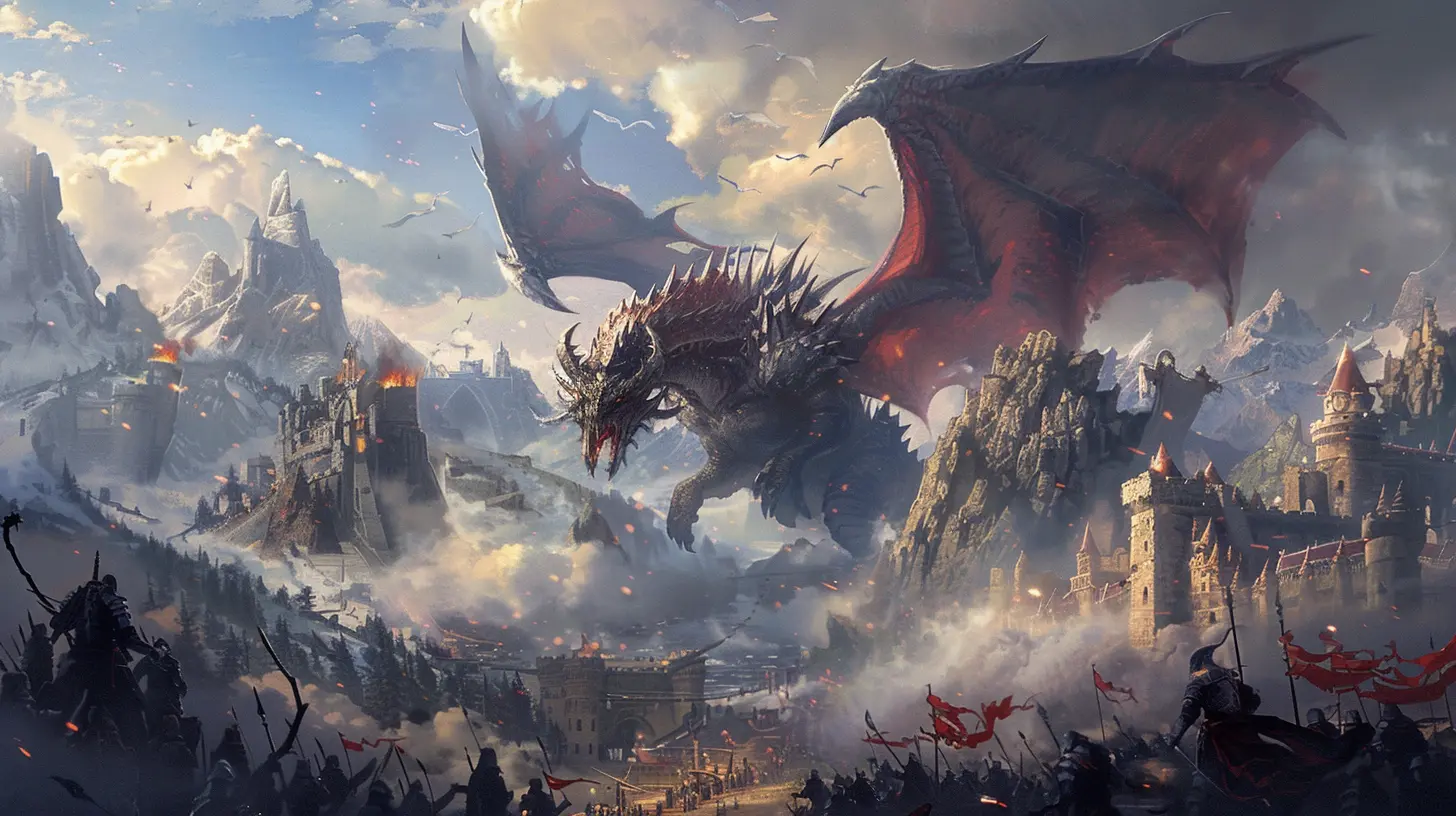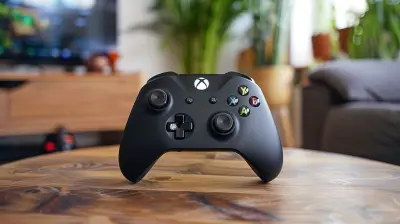Debunking Common Myths About Free-to-Play Games
21 August 2025
Let’s be real: free-to-play (F2P) games often get a bad rap. Mention them, and you’ll probably hear someone roll their eyes and mutter something about microtransactions, pay-to-win mechanics, or "low-quality junk churned out just to make a quick buck." Sound familiar? But are these judgments entirely fair? Or are we all just hanging onto outdated myths about F2P games without bothering to question them?
In this article, I’ll tackle some of the most common misconceptions about free-to-play games, peeling back the layers of misunderstanding and revealing the truth behind the hype. Spoiler alert: you might walk away with a whole new appreciation for this gaming genre.
Myth #1: “Free-to-Play Games Are All Low Quality”
The Misconception:
One of the loudest complaints about F2P games is that they’re shallow, grindy, or downright trash. There’s this belief that because they’re free, they must be less polished than games that come with a price tag.The Reality:
Let’s take a step back here. Sure, some free-to-play games don’t exactly scream “Game of the Year,” but the same could be said for paid games. Ever shove $60 into a shiny new release only to be hit with a buggy mess that felt like it was held together with duct tape and hope? Yeah, me too.The truth is, many F2P games are created with the same level of care, detail, and innovation as premium titles. Think about games like Fortnite, Genshin Impact, or Apex Legends. These aren’t fly-by-night projects—they’re global phenomena with massive communities, frequent updates, and gameplay that rivals (if not surpasses) many paid games.
Plus, for developers trying to break into the market, the F2P model can be a brilliant way to get people playing their game without the barrier of a price tag. The result? A crazy diversity of games, ranging from quirky indies to AAA-level blockbusters.
Myth #2: “F2P Games Are Just Pay-to-Win”
The Misconception:
“Yeah, it’s free... until you want to actually win,” says every skeptic ever. The idea here is that F2P games throw up massive paywalls, forcing players to cough up cash just to stay competitive.The Reality:
Look—there’s no denying that some F2P games lean into sketchy monetization strategies. But painting the entire genre with the same brush is like saying “all movies suck” because you saw one bad sequel (looking at you, Cats).The truth is, most well-designed F2P games don’t require you to spend money to have fun. Instead, they monetize through optional in-game purchases, often for cosmetic items, skins, or boosters that don’t give a competitive edge. Take League of Legends, for example. You can play without spending a dime, and your success depends purely on your skills, not your wallet.
And if you’re worried about games where cash influences gameplay, many titles actively balance that by matching players against similarly skilled opponents. Developers know that blatantly pay-to-win systems can alienate their player base, and no community = no revenue.
Myth #3: “F2P Games Are Just Gambling in Disguise”
The Misconception:
Loot boxes, gacha mechanics, random drops—oh my! Critics argue that free-to-play games use gambling-like systems to manipulate players into spending more than they would on a traditional game.The Reality:
Okay, let me break this one down. While it’s true that some F2P games use gacha systems or random loot, not every free-to-play game is trying to turn you into a compulsive spender. The comparison to gambling is an oversimplification.First, many games provide free ways to earn premium content through grinding or completing challenges. Second, as players demand better transparency, some developers are ditching the whole random-draw system for more straightforward monetization models. Valorant, for instance, offers premium cosmetics without loot boxes—you pick what you want, pay for it, done deal.
Of course, this doesn’t mean F2P games are perfect. It’s always a good idea to keep an eye on spending habits, especially in titles with gacha mechanics. But the sweeping assumption that they’re all casino-level exploitative? Nah, not accurate.
Myth #4: “You Only Play F2P Games If You’re Too Cheap to Buy ‘Real’ Games”
The Misconception:
There’s a stigma (whether spoken or unspoken) that people play F2P games because they don’t want to—or can’t—pay for premium games. It’s often seen as a “budget” way to game.The Reality:
First of all, let’s stop shaming people for how they enjoy their hobbies, okay? Secondly, this stereotype completely ignores the fact that many gamers choose F2P titles over premium ones, not because of the cost, but because of the quality. Yep, you read that right.Games like Warframe, Dauntless, or Destiny 2 (which transitioned to F2P) have tens of millions of players—not because they’re cheap, but because they’re fun. Plus, the F2P model attracts massive communities, creating social experiences that many paid games struggle to replicate.
Think about it this way: would you rather pay $70 for a game your five friends can’t afford… or dive into an F2P title where all of you can squad up together? It’s not about being “cheap”—it’s about accessible, communal fun.
Myth #5: “F2P Games Are Only Fun for Casuals”
The Misconception:
“Oh, free-to-play games are fine if you’re just looking to kill time. But if you’re a serious gamer? Forget it.” This myth suggests that F2P games are only for casual players, with little depth or complexity.The Reality:
Yeah, no. Tell that to the League of Legends players who spent years perfecting their strategies or the Fortnite pros racking up millions in eSports tournaments. The idea that F2P games lack depth or skill requirements is flat-out wrong.Some F2P games are indeed casual-friendly, giving you bite-sized experiences you can pick up and play. But others? They’ll demand hours of practice, teamwork, and strategic thinking if you want to rise through the ranks. Competitive games like Valorant, Dota 2, or Call of Duty: Warzone can go toe-to-toe with any premium title in terms of complexity and challenge.
Myth #6: “F2P Games Are Just a Fad”
The Misconception:
“This free-to-play trend is just a phase. People will eventually get bored and go back to buying traditional games.”The Reality:
Fads don’t usually stick around for over a decade and generate billions of dollars in revenue, do they? (Looking at you, Candy Crush and Clash of Clans.) The F2P model isn’t a passing trend—it’s a fundamental shift in how games are made and monetized.In fact, many big-name developers are now embracing free-to-play elements. Even premium games are starting to incorporate F2P-like mechanics, proving that this model isn’t just “here to stay”—it’s shaping the future of gaming.
So… Why Do These Myths Exist?
Let’s be honest: some of these misconceptions aren’t entirely unfounded. Shady monetization practices? They exist. Low-effort cash grabs? Yup, they’re out there. But the bigger picture reveals a thriving ecosystem of creativity, opportunity, and accessibility.The key is to separate the bad apples from the bunch. Sure, not every F2P game is a masterpiece—but neither is every $70 AAA release. As gamers, we owe it to ourselves to look beyond the stereotypes and judge games on their actual merits, not their price tag.
Final Thoughts
Free-to-play games have come a long way from their early days. They’re no longer the scrappy underdogs of the gaming world—they’re heavy hitters in their own right. Whether you’re a seasoned pro or a casual player, there’s a F2P game out there that’s worth your time (and maybe even a little of your cash).So next time someone sneers at F2P games? Hit ’em with the facts. Because the reality is, free-to-play isn’t just the future—it’s the here and now.
all images in this post were generated using AI tools
Category:
Free To Play GamesAuthor:

Lana Johnson
Discussion
rate this article
1 comments
Nicole Porter
Great article! It’s refreshing to see myths about free-to-play games addressed. They can be fun and fair if done right!
September 10, 2025 at 2:46 AM

Lana Johnson
Thank you! I'm glad you enjoyed it and found the myths addressed. Free-to-play games can indeed offer a fun and fair experience!


